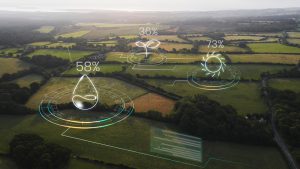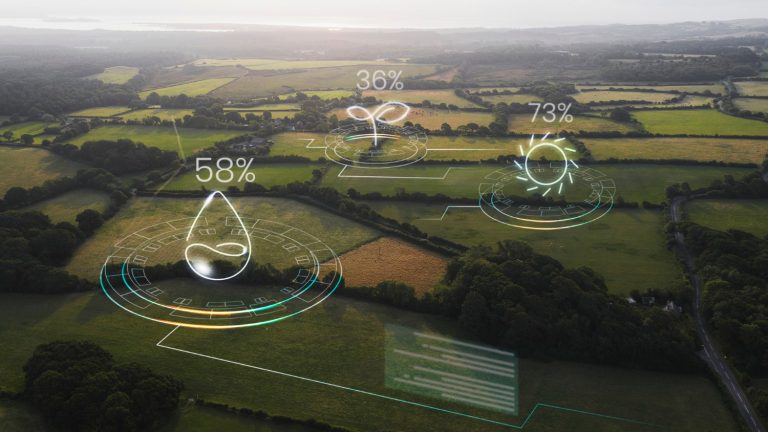Thanks to the fusion of the Internet of Things (IoT) and Artificial Intelligence (AI), agriculture now has a strong footing in technology. It has seen a transformative revolution, especially in this era where tech advancements dominate every aspect of our lives. Smart Agriculture is a creative approach that gets support from modern technological trends. It refers to reshaping conventional farming practices into something much more like increased sustainability, productivity, and efficiency.

One result of this technological advancement is the invention of virtual casinos like GGbet to replace traditional ones. Such iGaming platforms offer many incentives like 15 free spins at GGbet, which helps to accentuate players’ effort and aids activeness on the websites. In the same light, these technologies help to foster farming and other agricultural endeavors. Let’s delve in!
The Impacts of Integrating Advanced Technologies With Agriculture
Smart Agriculture stems from the Internet of Things. This is a network of intertwined devices that interact and easily share data. In farming, the IoT devices used to get effective results are drones, sensors, and automated machinery. Such present-time innovations mainly collect and monitor real-time data on:
- Livestock;
- Social conditions;
- Weather patterns;
- Crop health.
Information gathered about all of the aspects listed above provides invaluable insights that can help farmers get better results and do things in a more productive way. The following are some impacts of infusing technologies in farming endeavors.
Intelligent Decision-Making
The combination of Agriculture and Artificial Intelligence fosters intelligent decision-making processes on the part of the farm owners. Machine learning algorithms help to evaluate vast datasets generated by the IoT devices mentioned above. Hence, they help identify patterns and trends that farmers should note. With this predictive analytics technology, farmers can make informed and detailed decisions regarding planting, harvesting, and resource allocation. In all, these decisions help to improve crop yield and quality.
Precision Farming
A major benefit of Smart Farming is precision farming. This refers to using data-driven results to help farmers optimize the use of resources available. For instance:
- Soil sensors are effective in helping moisture levels. This helps farmers particularly irrigate the fields and lessen water wastage;
- Drones equipped with cameras and sensors serve as another helpful tool. They are applied for monitoring large expanses of farmland and helping farmers identify the areas that need immediate attention. For example, it can tell farmers if the farm is suffering from pest infestations or nutrient deficiencies, especially for those who practice extensive farming.
Sustainable Agriculture Practices
Smart farming holds a major significance in promoting sustainable farming practices. The combination of AI and IoT optimizes resources to help lessen the environmental impact of agriculture.
For instance, the precise application of things like pesticides and fertilizers supported with AI algorithms does wonders. In that, it helps to minimize wastage and ensures that only the right amount of resources is used. As a result, both cost-effectiveness and ecological sustainability are upheld.
Livestock Monitoring
When it comes to Smart Agriculture, things are beyond just crops. They also include livestock monitoring and animal welfare. Some IoT devices include wearable sensors on animals to provide real-time data on location, health, and behavior. With the integration of the data derived from such equipment, farmers can easily detect illnesses early in their livestock and optimize feeding schedules, boosting the overall welfare of their animals.
Smart Agriculture-Related Challenges
Up till this moment, you will agree that the benefits of Smart Agriculture are compelling, convincing, and tempting. Therefore, there are certain challenges like data security, digital divide, and infrastructure requirements that you should be conscious of when using such techs.
Most of these technologies require access to a reliable and strong Internet connection before it can work as effectively as possible. Also, adequate and comprehensive data privacy measures are important to help protect sensitive agricultural information.
In the long haul, it is essential to consider all of these factors when using Artificial Intelligence combined with the Internet of Things. This is the only way you can truly enjoy the benefits that they can offer.
Take the Transformative Leap
Technology continues to evolve and advance into much more. That is why it is safe to say that the future of Smart Agriculture looks quite promising. So, advancements in sensor technology, AI algorithms, and connectivity foster Smart Farming. Its help will someday make it a pivotal part of the quest for global food security and sustainable farming practices.
The same technology is used in reputable online casinos. So, you can also become a part of this change by taking the leap and actively participating in it.
